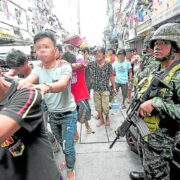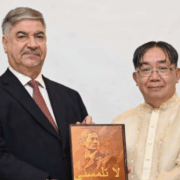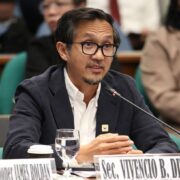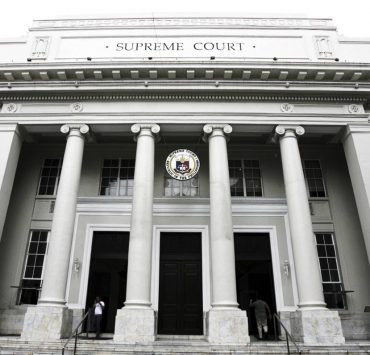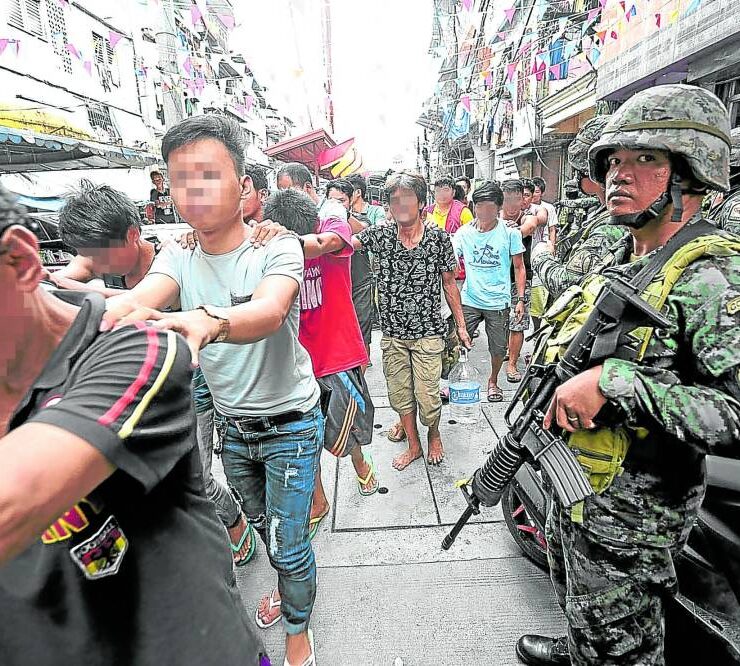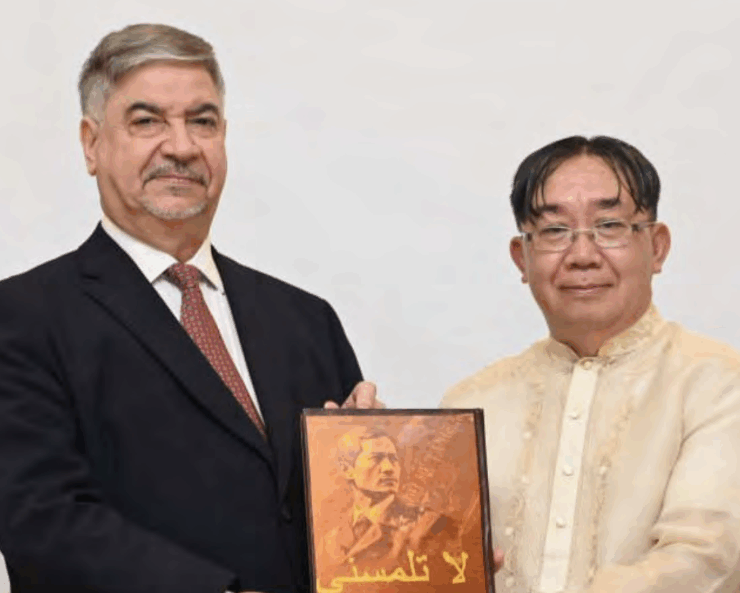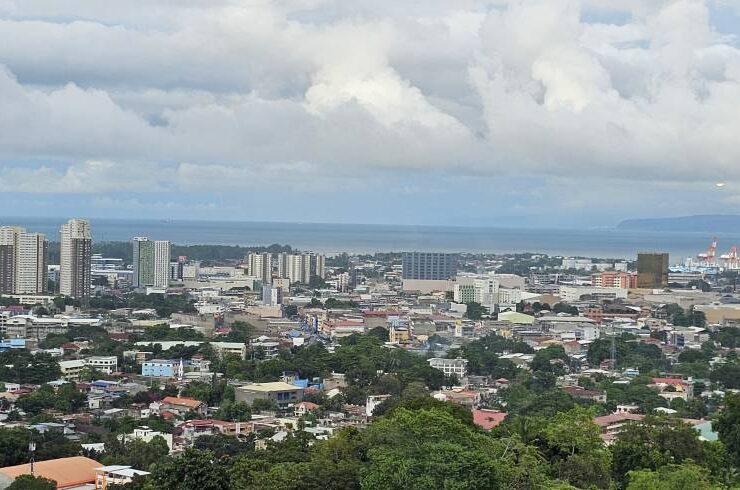Palace clarifies ‘options’: PH remains out of ICC
President Marcos has not changed his stance that the International Criminal Court (ICC) has no jurisdiction over the Philippines even if he had ordered the Department of Justice (DOJ) to study his legal options, including rejoining the tribunal.
Malacañang on Thursday said the DOJ was just preparing a briefer on what measures the President could take in case the ICC orders the arrest of former President Rodrigo Duterte.
“This is standard procedure, not a change in position, ensuring that our administration remains prepared for any scenario,” said Presidential Communications Office Secretary Cheloy Garafil.
Garafil stressed that the President’s stance on the ICC’s lack of jurisdiction in investigating Duterte’s bloody antinarcotics campaign “remains clear and consistent.”
“However, it is the duty of the DOJ to explore all legal avenues and ensure that the President is fully informed of his options,” she said.
She made the remarks after Assistant Justice Secretary Jose Dominic Clavano IV on Wednesday said the legal brief being prepared would guide Mr. Marcos on “how he will move.”
Clavano was responding to an earlier statement by former Sen. Antonio Trillanes IV that the ICC may soon issue an arrest warrant against Duterte and others in relation to its investigation of crimes against humanity in the former president’s bloody drug war.
One of the options is the possibility of rejoining the Rome Statute, the 2002 treaty that established the ICC, Clavano said.
It was Duterte who ordered the Philippines’ withdrawal from the treaty, which took effect in March 2019. Mr. Marcos was one of the 17 senators who voted to ratify the Rome Statute in 2011.
In November last year, he acknowledged a proposed “sense of the House” resolution to cooperate in the ICC investigation of Duterte’s alleged crimes.
But he said that after the withdrawal from the ICC, there were “fundamental” questions regarding its jurisdiction and Philippine sovereignty in allowing foreign investigators to conduct a criminal probe in the country when its own police could do the same. It wasn’t right for foreign entities to investigate and arrest Filipinos, he said.
Mr. Marcos said, however, that rejoining the ICC was among the “options” under study as early as then.
Considered a ‘threat’
But in a statement to reporters on Jan. 23 this year, he made a more forceful statement against the ICC.
“I do not recognize the jurisdiction of the ICC in the Philippines. I consider it as a threat to our sovereignty,” he said.
Amid reports earlier this year that ICC investigators were in the country, the President ordered government agencies not to cooperate with the ICC’s probe of Duterte’s war on drugs that killed more than 6,000 people, according to official figures.
Duterte’s former spokesperson and chief presidential legal counsel, Salvador Panelo, castigated the DOJ, suggesting that it was stoking the simmering conflict between the President and the Duterte family.
“The DOJ should refrain from intriguing and stop making the President look like he would renege on his unequivocal stand against ICC’s intrusion on our legal system,” he said.
‘Ignorance’
He criticized the DOJ for its “ignorance or pretended ignorance” of Mr. Marcos’ refusal to recognize the ICC’s jurisdiction.
Panelo said the DOJ should follow the President’s policy and “not undermine it,” warning that the ICC’s arrest warrant against any Filipino citizen was an “outright and brazen assault to sovereignty and territorial integrity of the Philippines.”
Panelo pointed out that what may appear as the flipflopping stance of the President might lead to the “possible wanton disregard” of his duty to protect and uphold the 1987 Constitution.
Sen. Chiz Escudero on Thursday expressed similar concerns, questioning the motive behind the DOJ announcement on its preparation of a legal brief for the President.
Escudero said the DOJ’s remarks would only exacerbate the tension between the Marcoses and the Dutertes.
“What I don’t understand is why a presscon had to be called to announce something that is in the normal course of things or as it should be?” Escudero said. “Providing legal briefings to the President is standard procedure.”
Escudero noted that tensions between the Marcos and Duterte camps remained high.
“Surely, such actions are not helping cool down or mend tensions between the Dutertes and the Marcoses,” Escudero pointed out.
Bato disappointed
Meanwhile, Sen. Bato dela Rosa expressed disappointment over one of his seniors in the Philippine Military Academy who was allegedly trying to convince police officials to testify against him and others in the ICC.
Dela Rosa said he personally persuaded Duterte to keep the official in his post where he was appointed by the former president’s predecessor, Benigno Aquino III.
“So sad of my upperclassman. When PRRD was about to remove u frm ur post coz ur a Pnoy appointee, I move heaven & earth to dissuade him. U finished the whole 6 yr term. Now, ur busy convincing pnp officers to testify against us in ICC. God bless u sir,” the senator said in a post on his Facebook page on Thursday.
Dela Rosa was the chief implementer of Duterte’s brutal antidrug campaign. He was among 11 other former Duterte administration officials named in a complaint of crimes against humanity in the drug war submitted to the ICC.
Several pro-Marcos administration members of the House, however, seem to be warming up to the idea of returning to the ICC fold.
Supportive lawmakers
Speaking to reporters, House Deputy Majority Leaders Tingog Rep. Jude Acidre, Isabela Rep. Faustino Dy and Manila Rep. Ernesto Dionisio Jr. expressed openness to rejoining or cooperating with the court.
“Considering that we live in a rules-based international order, I think it’s important that we are part of structures like the ICC, especially in a world that’s getting smaller amid borderless crimes and during circumstances where countries are unable to hold criminals to account—especially when they are in power,” Acidre said.
Dionisio said he saw “no reason to be afraid of the ICC.”
“If there is nothing to hide, then why be afraid?” he said. “[If] (Mr. Marcos) sees a valid reason to pivot, I think it’s possible (to return to the ICC).”
Dy said that since Duterte had unilaterally withdrawn from the Rome Statute Mr. Marcos could also “unilaterally enter” the same treaty.
“So, definitely nothing is impossible,” he said.
This is not the first time that House members, led by the President’s cousin, Speaker Martin Romualdez, expressed openness to cooperating with the ICC as the relationship between the Marcoses and Dutertes deteriorated.
Calls for cooperation
Last year, proadministration lawmakers Manila Rep. Bienvenido Abante and 1-Rider party list Rep. Ramon Rodrigo Gutierrez filed House Resolution Nos. 1393 and 1477 urging the government to cooperate with the ICC’s investigation.
These were discussed by the committees on justice and on human rights shortly after the House removed Vice President Sara Duterte’s confidential funds for 2024.
The younger Duterte had already been at odds with Romualdez, resigning as chair of the Lakas-CMD party shortly after the Speaker ousted her mentor, former President and Pampanga Rep. Gloria Macapagal Arroyo, as senior deputy speaker.
In February last year, Arroyo filed a resolution “in defense of former President Rodrigo Roa Duterte… against the investigation and/or prosecution by the ICC,” shortly after the ICC rejected the Philippines’ appeal to defer its investigation to give way for the domestic justice system to prosecute perpetrators of atrocities in the drug war. —WITH REPORTS FROM TINA G. SANTOS AND KRIXIA SUBINGSUBING INQ




